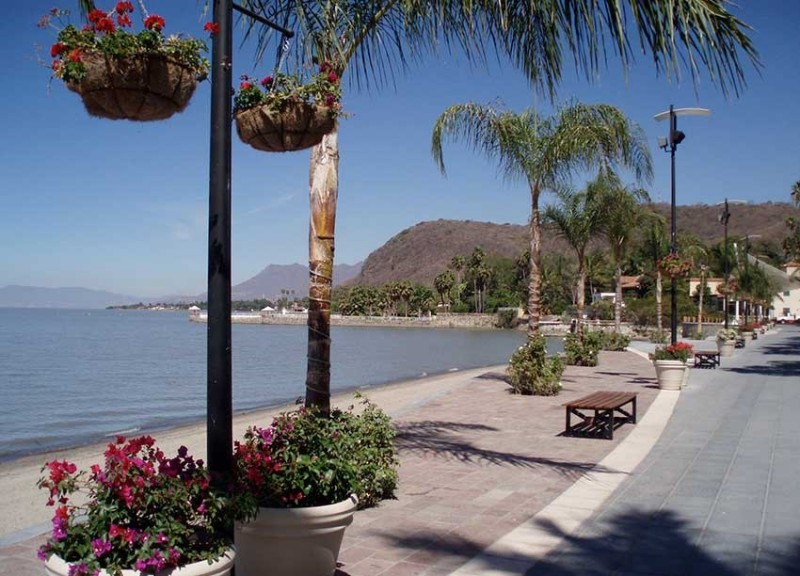10,000 baby boomers retire every day, and many are coming to Mexico
Cost, climate, health care and culture are the principal reasons for the Mexodus…Bill Dahl/Mexico Daily News
Needless to say, the social and political rancor in North America has reached new heights (or lows). In the United States political sphere, the November 2018 mid-term elections resulted in the Democratic Party wresting control of the U.S. House of Representatives.
The U.S. president’s approval ratings hover around 38%. The issue of U.S. immigration reform remains paralyzed amidst political acrimony. Yet, the U.S. president remains adamant about his desire to obtain billions of dollars to build a border wall to keep prospective immigrants out of the U.S.
Meanwhile, a new norm has developed.
Obscured by all of the above is the steady flow of North Americans headed south — to Mexico. Frankly, it’s an exodus; or a Mexodus. According to CBS News, the number of Americans retiring outside the United States is growing exponentially. Between 2010 and 2015 the number grew 17% and the figure is expected to rise during the next 10 years as boomer retirement continues.
According to several sources, Mexico is now considered the preferred retirement home for an estimated one million to two million American retirees — more than any other country. According to Senior Living magazine, an estimated 10,000 baby boomers will achieve retirement age each day between now and 2030.
“Where should I retire?” is a common question in North America as baby boomers contemplate how and where they might spend the remainder of this life. For tens of thousands, this question includes destinations outside the U.S. or Canada. Oftentimes this process involves mulling over Mexico.
Every January, the publication International Living provides retirees with suggestions using their Annual Global Retirement Index. In 2018, Mexico was ranked as the second best place to retire. Estimates vary, but it’s safe to conclude that a few million Americans and Canadians now reside primarily in Mexico. That’s a lot of gringos who have made the leap.
I completed two two-week visits to the Guadalajara and Lake Chapala areas in central Mexico in August and October-November 2018. The purpose of these trips was to examine the possibility for retirement in this locale, already home to thousands of expat retirees/resident tourists from the U.S., Canada, Europe and the United Kingdom.
What motivated my wife and I to invest in considering Mexico? During these exploratory visits, we had the opportunity to speak with dozens upon dozens of North American baby boomers in Mexico. Some were already residing there. Others were exploring the possibilities as we were.
Our question was: “What inspires retiring North American baby boomers to consider Mexico as their retirement home?” Here’s what they told us:
1. Reduce my cost of living. As study after study indicates, North American baby boomers are ill prepared financially for retirement. HousingWire magazine says this “lack of financial preparedness” has become the primary cause of anxiety among boomers.
According to International Living, you can live on US $1,865 per month in Mexico including rent, utilities, groceries, entertainment, health care, household help and incidentals. For a couple, the figure is $2,500 per month.
Again, costs are relative. Want to live in a tourist area near a Mexican beach on the sea? Your costs will be significantly higher. The same is true for areas in Mexico where North American retirees are already well established like the Lake Chapala/Ajijic area and San Miguel de Allende. The current peso to the dollar foreign exchange reality makes reducing the cost of living even more practical.
2. A better climate. For many, the motivation to move toward a better climate and retire the snow shovel, winter clothing and umbrella, and avoid sleet, ice, humidity, excessive heat and the like was a common reply. Of course, Mexico is a massive geographic area. However, the variety of improved climate choices within the country make it attractive to retiring baby boomers.
3. More affordable health care. Mexico, particularly when compared to the U.S., has a vastly more affordable health care environment. Of course, this depends upon one’s current medical requirements and those that may arise in the future.
No, Medicare is not valid for medical treatment outside the U.S. Thus, you must rely on cash and qualifying for available Mexican health care coverage for those who hold both temporary and permanent visas. Of course, for treatment requiring Medicare coverage you can return to the U.S. for the same.
4. A cultural adventure. A common response was the desire for a cultural adventure. Mexico’s proximity to Canada and the U.S. provides just that. From food to landscapes to architecture, language, the arts and the people, Mexico possesses what North American retirees seeking new cultural experiences are after.
Baby boomers have been characterized by Alexis Abrahamson as those who “make smart decisions based on available resources.” They are independent and “make up their own minds and determine what is most valuable or significant.”
Moving to Mexico for retirement appears to have become the new norm for North American boomers. There is no wall that can prevent the flow of North American retirees relocating to Mexico — along with their substantial economic contributions to the Mexican economy.
Bill Dahl is a United States-based investigative journalist who recently completed four weeks in the Guadalajara/Chapala region of central Mexico examining the current challenges in the area.













